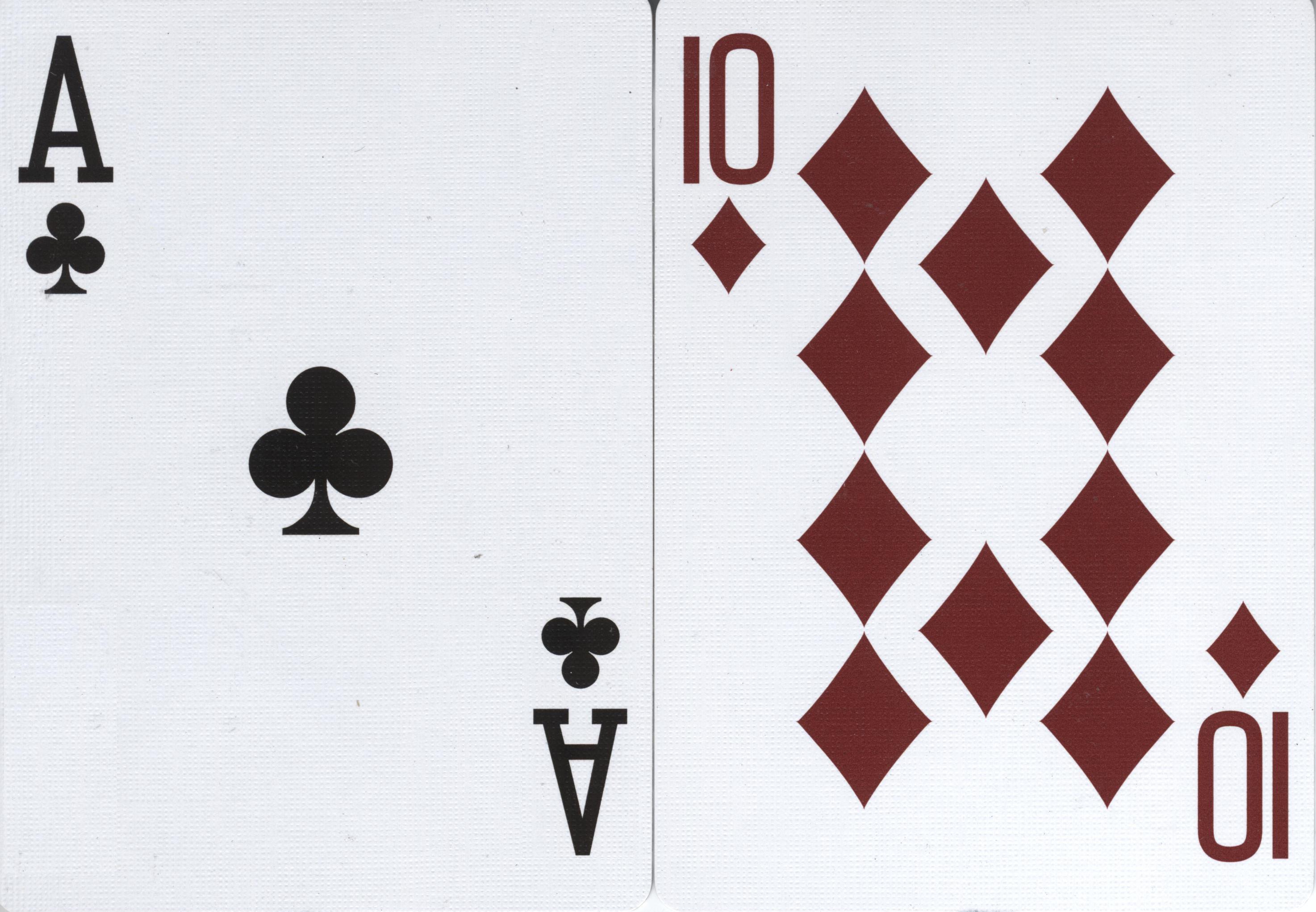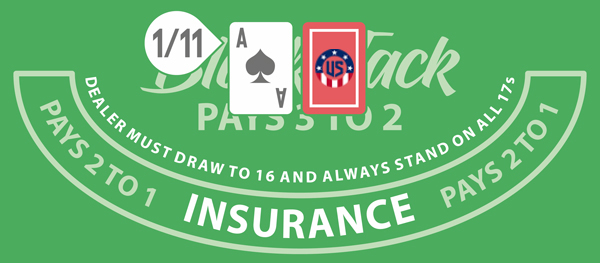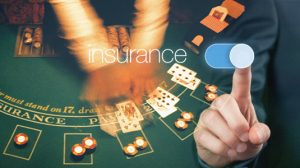Should I Take Insurance In Blackjack
- Should You Use Insurance In Blackjack
- Should I Take Insurance In Blackjack For Real
- Should I Take Insurance In Blackjack Without
- Should I Take Insurance In Blackjack Winnings
Insurance is a word that most people are familiar with. You buy insurance just in case you get in a car accident with an uninsured driver, just in case you die and just in case you break your arm after falling off your ladder while hanging Christmas lights. You pay a premium up front and if or when the inevitable happens, the insurance companies takes care of (most of) the cost.

Basically for a 6 deck game at what + count should I take insurance? From what I can gather the basic chance is 16/52 of getting blackjack (as there are 16 ten cards in a 52 card deck). So for every + count that is one less card in the deck. Insurance pays 2:1, so (52-x)/16 = 2+1, 52-x = 48, x = 4. Basic blackjack strategy players should simply never take the insurance bet, because usually they’re just throwing their money away. Although the idea seems appealing, because you still get something if the dealer is holding the all-powerful blackjack hand, it’s isn’t actually very favorable to you as a player.
- Take insurance, dealer has blackjack and it's a push on the initial bet, and a win of 2:1 on the insurance bet, or even money. Don't take insurance, dealer has blackjack and it's a push. Take insurance, dealer DOESN'T have blackjack and player will lose 50% of their betting unit (the insurance bet) and player wins on blackjack, (this.
- A basic strategy player should never take insurance. Only a card counter knows when this bet is profitable. Only a card counter knows when this bet is profitable. If you are dealt a blackjack and the dealer shows an “Ace” simply reply “No, I’ll take my chances!”, when you are asked if you would like “even money”.
With traditional insurance in mind, I think a lot of players confuse what insurance is as a side-bet in blackjack. Insurance (in blackjack) is not as good as it appears. My goal for this article is to explain exactly what blackjack insurance is, and why you should avoid it like the plague.
Insurance is a side-bet that dealers offer to players whenever they have an ace showing. The idea behind insurance is to protect your bet just in case the dealer has a blackjack.
How Does Insurance in Blackjack Work?
When a dealer has an ace showing they’ll ask you if you want insurance. This is before they check for a (natural) 21. If you take the insurance you can wager as much as half of your original bet. For example, if your original bet was $10 you can pay as much as $5 for insurance.
Once the insurance bet has been placed the dealer will then check for a blackjack. If the dealer has a blackjack you’ll be paid 2-1 on your money (insurance bet). If you wagered $5 you’d receive $10. However, unless you have a blackjack, too, you will still lose your original bet, breaking even overall. If the dealer doesn’t have a blackjack, you’ll lose your insurance bet and will still have the opportunity to play your hand like normal.
Another insurance-like situation you may find yourself in is if you have a natural blackjack and the dealer has an ace showing. The dealer will offer you even money on your bet. In other words, if you bet the maximum of $5 insurance on a $10 bet and the dealer has a 21, you’ll push on the blackjack, but win 2-1 on your insurance. So you’d be up $10. However, if you take the insurance and the dealer doesn’t have a blackjack, you’ll lose your $5 bet and win 2-1 on your blackjack ($15) for a total of $10. Either way, you walk away with an even money win.
So… Should You Take Insurance or Even Money Side-Bets?
Should You Use Insurance In Blackjack

No. Experts recommend that you pass on insurance bets.
The reason why passing on insurance in blackjack is recommended is because the dealer will only show up with a blackjack 30.87% of the time. However, to breakeven on the insurance bet you need a 10-point card to show up 1 out of 3 times (33%). So every time you take this bet you’re taking a minor loss over the long run, assuming you max your insurance bet (half the original).
There are exceptions, of course. For example, if you’re a card counter than you would know how many 10-point cards are left in the deck. So if the deck is rich with 10-point cards it would make sense to take the insurance bet. If the deck is poor with 10-point cards you’d pass on insurance.

You could even make the argument that you don’t have to be a card counter. In fact, if you simply pay attention to the cards dealt and notice that there are more 10-point cards then you could pass on insurance, or vice versa. The difference here (from counting cards) is that you’re not as accurate, and would likely be making a breakeven play, or at best a slight win/loss.

At the end of the day, though, taking insurance is going to be a -EV bet for the majority of players. To give you a better idea of how insurance affects the house edge, just look at these numbers:
Should I Take Insurance In Blackjack For Real
- 1 Deck – 5.88%
- 2 Decks – 6.8%
- 4 Decks – 7.25%
- 6 Decks – 7.4%
- 8 Decks – 7.47%
Not very appealing, right? So unless you know how to count cards you should avoid taking the insurance bet in blackjack like the plague. Unless you like losing, of course.
Should I Take Insurance In Blackjack Without
Blackjack insurance is one of those game rules you’ll find in almost every version of twenty-one you’ll play, whether you play online or in live casinos. The main reason blackjack insurance is offered is that many players take insurance. Almost 100% of the time, this is a mistake. Insurance in blackjack is a sucker bet–you should never take it. A few exceptions to that rule exist.
Should I Take Insurance In Blackjack Winnings
One gambling expert wrote “insurance is for cars and card counters”. While I can think of a few other cases where insuring oneself is a good idea, that’s a good quote to remember when you enter a casino. When you’re counting cards, you’ll encounter the rare occasion when the numbers indicate taking insurance is a good bet. Other than those cases, blackjack insurance is always a bad idea. Here’s why.